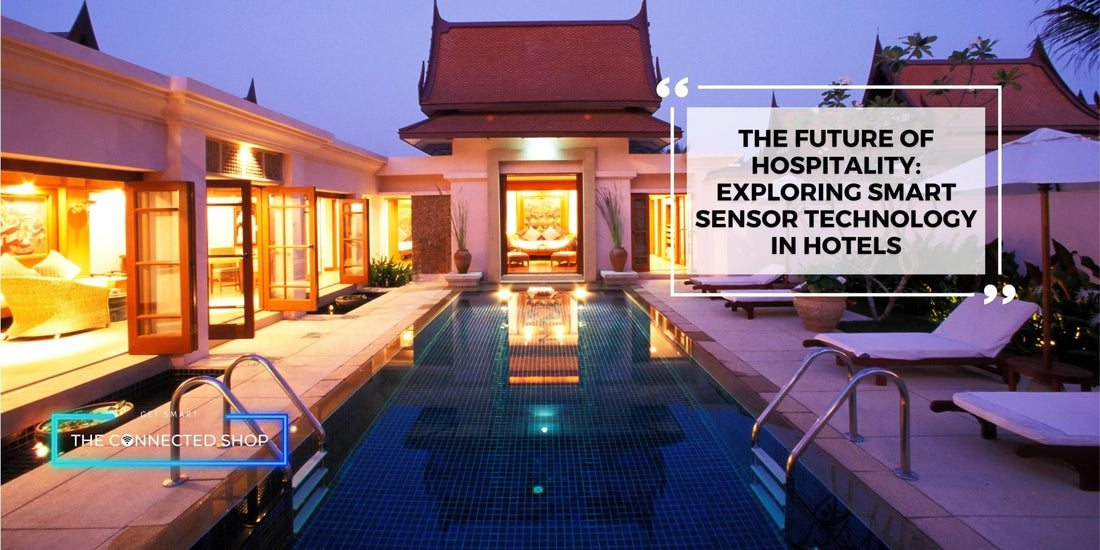Imagine entering a hotel that seems to anticipate your every need, where your comfort and security are meticulously catered to at every turn. As you step into your room, the lights automatically adjust to your preferred ambiance, the temperature adapts to your desired level of coziness, and the curtains gently draw themselves open to reveal panoramic city views. This is the power of smart sensors, seamlessly integrated into the fabric of hotels, providing a harmonious blend of technology and hospitality.
In this exploration of smart sensor technology in hotels, we will delve into the numerous ways in which these intelligent devices are reshaping the industry. From streamlining operations and optimizing energy efficiency to enhancing guest experiences and ensuring safety, the potential of smart sensors knows no bounds. We will unravel the inner workings of these remarkable devices, uncovering their ability to capture and analyze data, and enabling hoteliers to make data-driven decisions that elevate the quality of service to unparalleled heights.
The Role of Smart Sensor Technology in Hotels
Smart sensor technology plays an essential role in shaping the future of hotels, improving the guest experience, and transforming operational efficiency. These intelligent devices are designed to capture and analyze data, providing valuable insights that enable hoteliers to optimize various aspects of their operations. From enhancing guest comfort and personalization to streamlining energy management and ensuring safety, smart sensors act as the backbone of innovation within the hospitality industry. By seamlessly integrating into hotel environments, they enable a range of functions such as automated climate control, occupancy monitoring, and personalized lighting settings. Additionally, smart sensors facilitate efficient resource management by monitoring energy usage, detecting anomalies, and enabling proactive maintenance. Furthermore, they contribute to enhancing guest safety through applications like intrusion detection, fire monitoring, and emergency response systems. The role of smart sensor technology in hotels goes beyond mere convenience; it empowers hoteliers to provide exceptional experiences while improving operational sustainability, ultimately setting new standards for the industry as a whole.

How Does Smart Sensor Technology Improve the Guest Experience in Hotels?
Smart sensor technology significantly enhances the guest experience in hotels by offering a seamless blend of convenience, personalization, and efficiency. Here are some key ways in which smart sensors contribute to an elevated guest experience:
Personalized Comfort: Smart sensors enable hotels to tailor room environments to individual guest preferences automatically. They can adjust lighting, temperature, and even window blinds based on guest behavior and preferences, ensuring a comfortable and personalized stay.
Streamlined Check-In and Check-Out: Smart sensors facilitate frictionless check-in and check-out processes. Guests can use mobile devices or wearables equipped with sensors to bypass traditional front desks, gaining access to their rooms effortlessly. This saves time and enhances convenience, providing a seamless arrival and departure experience.
Enhanced Safety and Security: Smart sensors contribute to guest safety by monitoring and detecting potential hazards. They can detect smoke, fire, or unauthorized access, triggering immediate alerts and facilitating a rapid response. This helps ensure the well-being of guests and provides them with peace of mind during their stay.
Efficient Service Delivery: By tracking guest movements and preferences, smart sensors enable hotels to anticipate and respond to guest needs more efficiently. For example, sensors can detect when a guest enters a room, triggering requests for housekeeping, restocking minibars, or offering personalized recommendations and services.
Data-Driven Personalization: Smart sensors generate valuable data about guest behavior, preferences, and patterns. Hotels can leverage this data to gain insights into guest preferences, allowing for highly personalized services and recommendations. This level of customization creates a memorable and tailored experience for each guest.
Overall, smart sensor technology transforms the guest experience in hotels by combining convenience, personalization, energy efficiency, safety, and efficient service delivery. By leveraging these intelligent devices, hotels can exceed guest expectations and create memorable stays that are both comfortable and technologically advanced.

How Can Hotels Ensure a Smooth Transition When Adopting Smart Sensor Technology?
Ensuring a smooth transition when adopting smart sensor technology in hotels requires careful planning, effective communication, and strategic implementation. Firstly, hotels should conduct a comprehensive assessment of their existing infrastructure and identify areas where smart sensors can be integrated for maximum impact. This involves understanding the specific needs and goals of the hotel, whether it's enhancing guest experiences, improving operational efficiency, or optimizing resource management. Secondly, clear communication is vital to ensure that all stakeholders, including staff and guests, are informed about the changes and benefits brought by smart sensors. Training programs should be implemented to familiarize employees with the new technology and its operation. Thirdly, a phased approach to implementation can be beneficial, starting with pilot projects in specific areas of the hotel to test and refine the sensor systems before scaling up. Regular evaluation and feedback loops are essential to address any challenges or concerns that may arise during the transition. Lastly, partnering with experienced technology providers or consultants can provide valuable guidance and support throughout the process, helping hotels navigate the complexities and maximize the benefits of smart sensor adoption.

Conclusion
In conclusion, smart sensor technology is poised to redefine the hospitality industry, offering a future where hotels seamlessly integrate technology to enhance the guest experience. From personalized comfort to streamlined operations, these intelligent devices bring forth a new era of convenience, efficiency, and safety. By leveraging the power of data and automation, hotels can anticipate and cater to guest needs with remarkable precision, creating unforgettable stays that leave a lasting impression.
The impact of smart sensors extends beyond guest satisfaction, encompassing energy efficiency, resource management, and enhanced safety measures. As hotels embrace this cutting-edge technology, it is crucial to ensure a smooth transition by conducting thorough assessments, communicating effectively, implementing strategic plans, and seeking expert guidance.
By embracing smart sensor technology, hotels can unlock new levels of guest personalization, operational efficiency, and environmental sustainability. It is an exciting time to witness the transformative power of smart sensors in the world of hospitality, as they continue to shape the way hotels operate and provide unparalleled experiences for guests.
As we move forward into this era of intelligent hotels, let us embrace the potential of smart sensor technology, forging a future where the convergence of technology and hospitality creates remarkable stays and memories that will be cherished by guests around the world.



